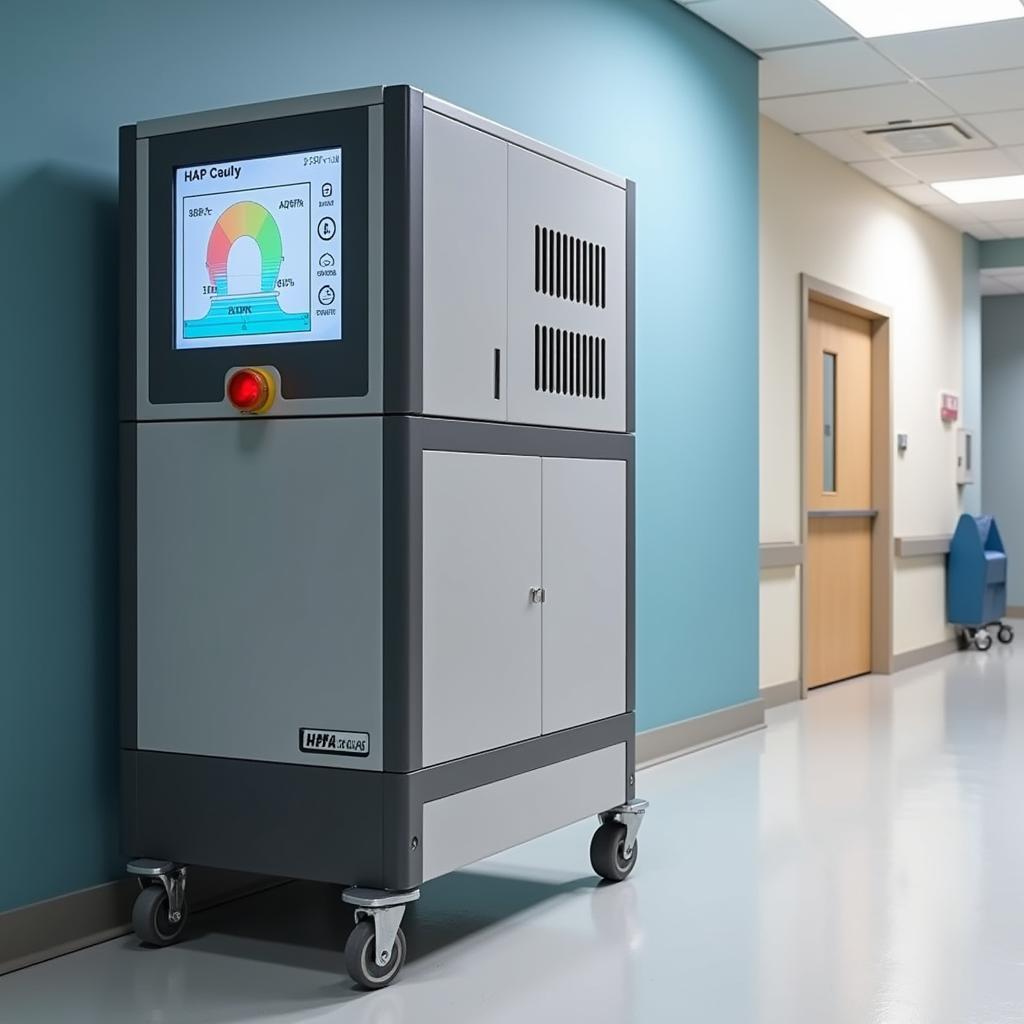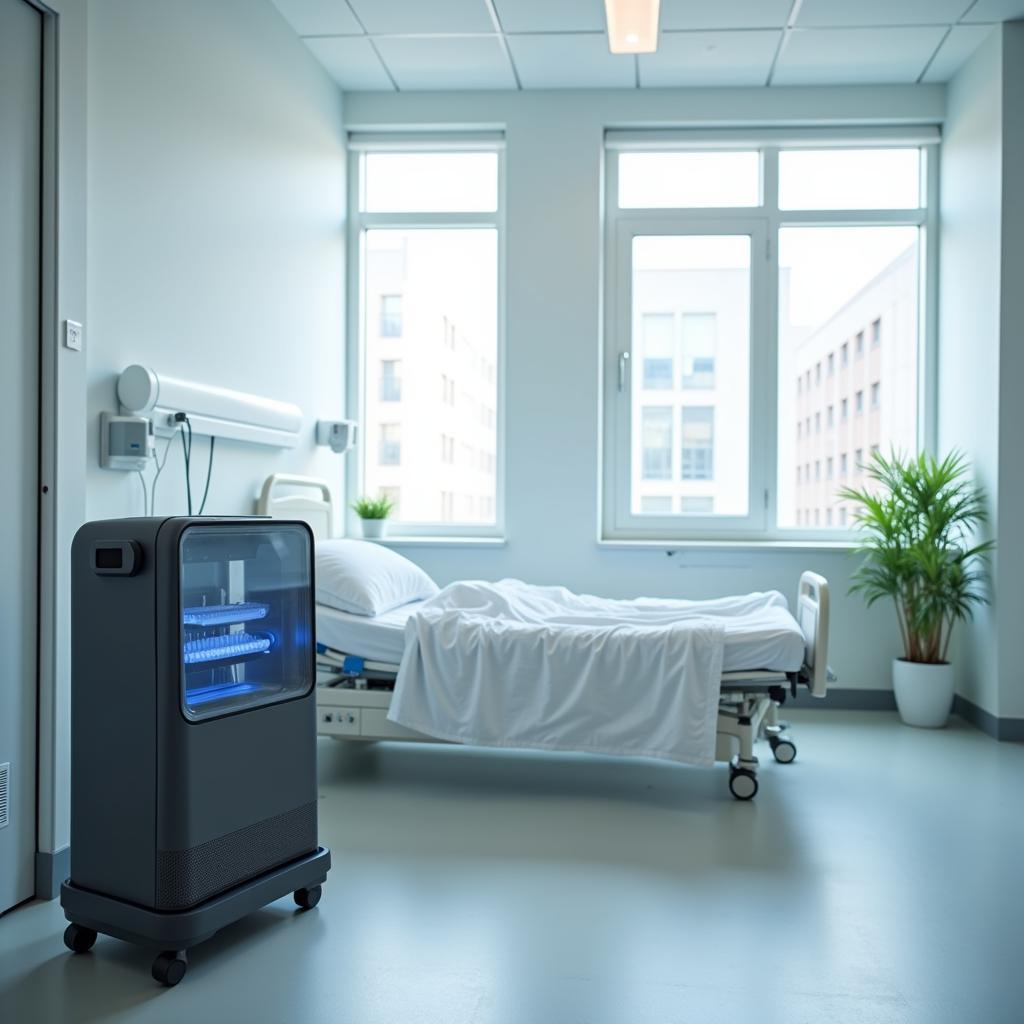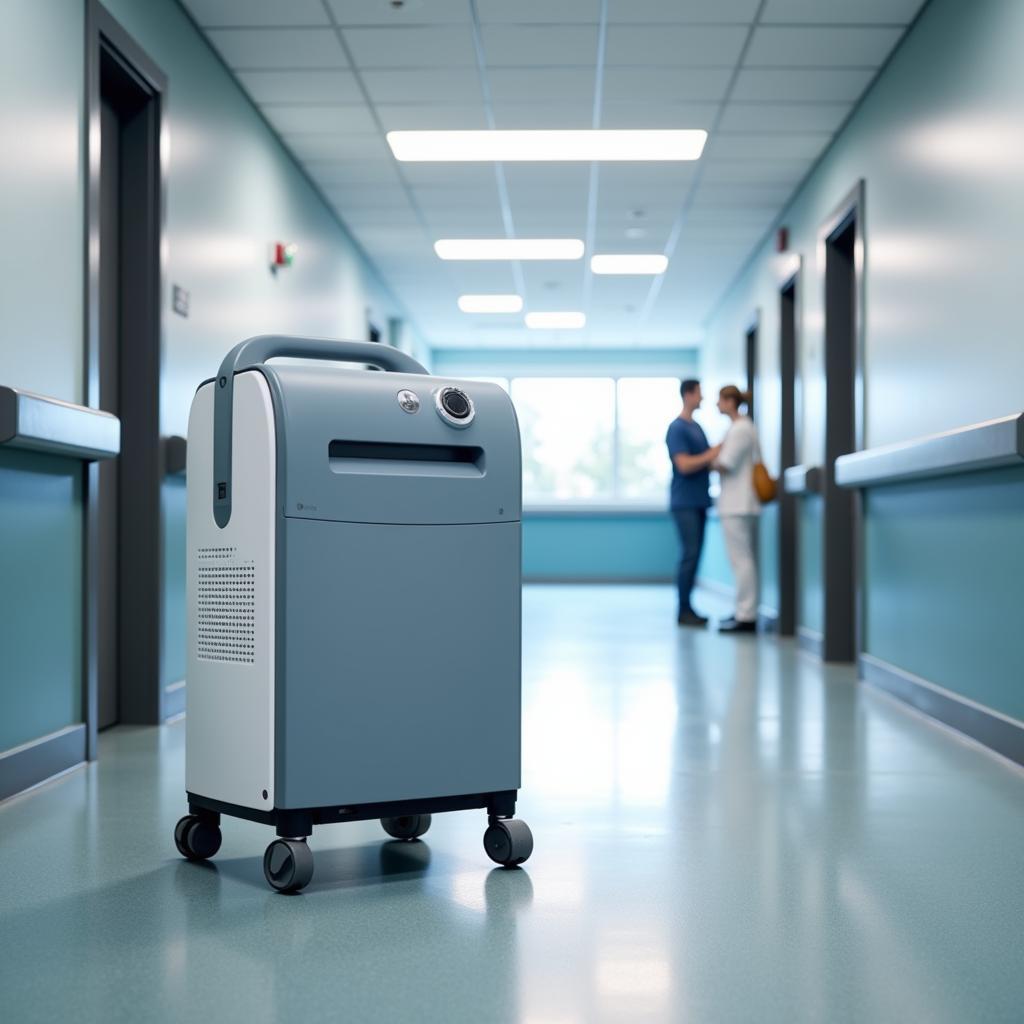Hospital Hepa Filters play a crucial role in maintaining a healthy and safe environment for patients, staff, and visitors. These specialized air filtration systems are designed to remove a high percentage of airborne particles, including dust, pollen, mold spores, bacteria, and viruses.
 Hospital HEPA Filter System in Operation
Hospital HEPA Filter System in Operation
What is a Hospital HEPA Filter?
HEPA stands for “high-efficiency particulate air.” A hospital HEPA filter is a type of mechanical air filter that works by forcing air through a fine mesh. This mesh traps harmful particles, preventing them from recirculating back into the air. To be classified as HEPA, a filter must capture at least 99.97% of particles that are 0.3 micrometers in diameter.
Why Are Hospital HEPA Filters Important?
Hospitals and healthcare facilities treat individuals with a wide range of illnesses and compromised immune systems, making them particularly vulnerable to airborne infections. Hospital HEPA filters are essential for:
- Infection Control: By removing bacteria and viruses, HEPA filters help prevent the spread of infections within healthcare settings.
- Improved Air Quality: HEPA filters remove common allergens and irritants, improving air quality and reducing symptoms for patients with respiratory conditions.
- Faster Recovery: Clean air can contribute to faster recovery times for patients recovering from surgery or illness.
Where are Hospital HEPA Filters Used?
 Hospital Room Equipped with a HEPA Filter
Hospital Room Equipped with a HEPA Filter
Hospital HEPA filters are used in various areas within healthcare facilities, including:
- Operating Rooms: Maintaining a sterile surgical field is crucial to prevent surgical site infections.
- Intensive Care Units (ICUs): Patients in ICUs are often critically ill and require the highest level of air purity.
- Isolation Rooms: HEPA filters are used in isolation rooms to prevent the spread of contagious diseases.
- General Patient Rooms: Many hospitals are now incorporating HEPA filters into general patient rooms to provide an extra layer of protection.
- Waiting Areas: HEPA filters in waiting areas can help reduce the overall concentration of airborne pathogens.
How to Choose the Right HEPA Filter for a Hospital
Selecting the appropriate hospital HEPA filter depends on several factors, including:
- Room Size: Filters are rated for the square footage they can effectively clean.
- Air Changes Per Hour (ACH): This metric indicates how many times per hour the filter can completely replace the air in a room.
- Noise Level: Consider the noise level of the filter, especially for patient rooms.
- Maintenance Requirements: Factor in the cost and frequency of filter replacements.
“When choosing a HEPA filter system for a healthcare setting, it’s crucial to consult with experts who understand the specific needs of the facility,” says Dr. Emily Carter, an infectious disease specialist. “Factors such as room size, ventilation rates, and the types of procedures performed should all be taken into consideration.”
Benefits of Hospital HEPA Filtration Systems
Investing in high-quality hospital air purification systems offers numerous benefits:
- Reduced Healthcare-Associated Infections (HAIs): Studies have shown a correlation between HEPA filtration and a decrease in HAIs.
- Improved Patient Satisfaction: Clean and fresh air contributes to a more positive patient experience.
- Enhanced Staff Safety: HEPA filters protect healthcare workers from exposure to airborne pathogens.
- Cost Savings: By preventing infections, HEPA filters can potentially reduce hospital readmissions and treatment costs.
 Portable HEPA Air Purifier in a Hospital Setting
Portable HEPA Air Purifier in a Hospital Setting
Conclusion
Hospital HEPA filters are indispensable components of a comprehensive infection control strategy. By effectively removing airborne particles, these filters create a healthier and safer environment for everyone within a healthcare facility. Investing in high-quality HEPA filtration is an investment in the well-being of patients, staff, and the overall success of the healthcare institution.